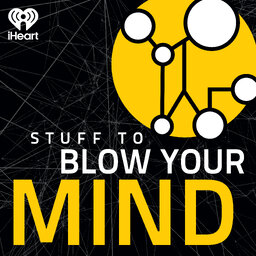The Minimal Group Paradigm
Humans obviously don’t have any difficulties finding division and tribalism, but just how little is required for factions to form? In this episode of Stuff to Blow Your Mind, Robert and Joe discuss the minimal group paradigm in social identity theory.
In 1 playlist(s)
Stuff To Blow Your Mind
Deep in the back of your mind, you’ve always had the feeling that there’s something strange about re…Social links
Follow podcast
Recent clips

From the Vault: Mystery Cults, Part 3
1:03:47

Weirdhouse Cinema Rewind: Forbidden Planet
1:34:55

From the Vault: Mystery Cults, Part 2
53:07
 Stuff To Blow Your Mind
Stuff To Blow Your Mind